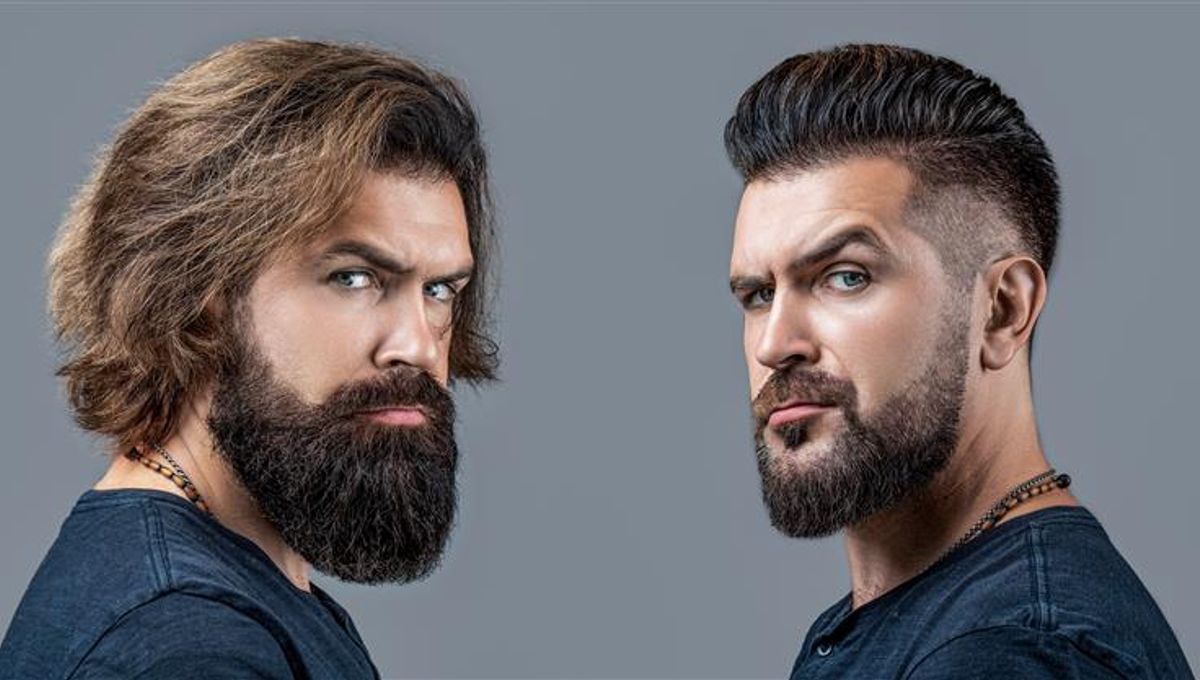
Over the last decade or so, beards have enjoyed a prominent place in men’s fashion. What was once deemed a temporary resurgence among hipsters in the late 2000s has now become a staple feature of chins across the land. But regardless of whether you think beards are hot or not, those with them have various motivations for maintaining the facial furniture. New research has shown that having a beard may correlate with certain social motivations for status as well as to signify a commitment to family care.
Facial hair in humans is a sexually dimorphic feature; that is, it is more strongly pronounced in males than it is in females. But have you ever wondered what purpose this serves us as a species?
Given that humans, like other primates, are social creatures that operate in groups of different sizes with multileveled social organizations, there is a good argument that beardedness could help signal status among males as well as attractiveness to females. Having a beard, for instance, may help signify someone’s age, their dominance, and their place in the group. This ornamentation argument would suggest then that men may intentionally manage the amount and shape of the hair on their faces as part of a self-promotional strategy.
But this type of upkeep comes with a cost, both financial (the male cosmetic industry continues to grow) and in terms of time and effort. So what are the psychological factors that motivate men to grow and maintain their beards?
This was the question that drove researchers from the University of Silesia in Poland and University of Padova in Italy.
“Studies conducted so far have shown that people give different characteristics related to fundamental social motives to men with different types of facial hair”, the team write in their study.
“However, research on perceptions of men’s facial hair provides mixed findings and there is a need for more research on the topic to help clarify this ambiguity.”
For instance, people see bearded men as healthier and as better fighters, possibly highlighting motivations concerning disease avoidance and self-protection. They are also regarded as more trustworthy and friendly, which could correspond to affiliative social interests. But bearded men can also be seen as more aggressive and dominant, which may suggest status-seeking motives.
In addition, research has shown that people regard men with facial hair as having greater fathering abilities, indicating potential family-care motives.
“We hypothesized that men’s striving to realize fundamental social motives might manifest through increased interest in facial hair enhancement”, the team explain. “[T]herefore, we predicted positive correlations between facial hair enhancement motivation and orientation on such fundamental social motives as self-protection, status-seeking, mate-seeking, and kin care related to children.”
To explore this, the team surveyed 414 men between 18 and 40 years of age. Those who took part provided information about their facial hair and completed questionnaires that measured four factors: their hair enhancement motivation, fundamental social motives, gender role stress, and intrasexual competition (between other males).
Hair enhancement motivation was measured by questions regarding their willingness to use professional beard and facial hair services, to buy facial hair care products, and to spend time trimming and styling their facial hair. To assess participant’s fundamental social motives, they were asked to rate the importance of things like self-protection, disease avoidance, affiliation to a group, affiliation to friends, their status-seeking, mate-seeking motives, and so on.
Participant’s gender role stress levels were measured by translating the Masculine Gender Role Stress Scale into Polish. This consists of five subscales that describe situations related to physical inadequacy (with statements like “Not being able to find a sexual partner”), subordination to women (“Being with a woman who is more successful than you), intellectual inferiority (“working with people who seem more ambitious than you”), and performance failure (“Being unable to perform sexually”). Participants were asked to rate how stressful they would find these situations.
Finally, intrasexual competition was measured using a translated version of the Intrasexual Competition Scale, which examined participants levels of envy (“I cant stand it when I meet another man who is more attractive than I am”), jealousy (“I look for negative characteristics in men who are successful”), and superiority (“I always want to beat other men/women”).
Overall, the team found that men with more facial hair were more likely to value keeping long-term relationships and were more interested in taking care of their family than those with less facial hair.
“Previous findings indicated that observers tend to perceive bearded men as having more parenting skills,” the team explain. “Therefore, having more facial hair may be used by men to inform other people that their social motives shift from focusing on mating market to focusing on long-term romantic relationships and family.”
“In addition, we found that among clean-shaven men mate-seeking motive was linked with a higher motivation to enhance their facial hair, which further supports this thesis.”
Interestingly, men who reported more competitiveness did not seem to display more facial hair. At the same time, gender role stress was not higher among men with more facial hair – growing beards, therefore, is not an attempt to compensate for other areas related to masculinity.
“The mixture of affiliative and competitive motivations which correlated with facial hair enhancement suggests that men who are motivated for facial hair enhancement also want to present themselves as valuable and reliable allies and friends,” the authors conclude.
The study is not without its limits, however. Future work, the authors argue, could pay more attention to the variety of different types of facial hair out there and how men shape it. The study also relied on self-report measures, which means it is possible respondents declared their conscious beliefs, rather than their actual motivation.
Nevertheless, the study is the first to examine facial hair enhancement motivations in men and provides new insights into why beards remain in fashion today.
The study is published in Archives of Sexual Behavior.
Source Link: Why Do Men Grow Beards? Study Reveals Surprising Motivations Behind Facial Hair